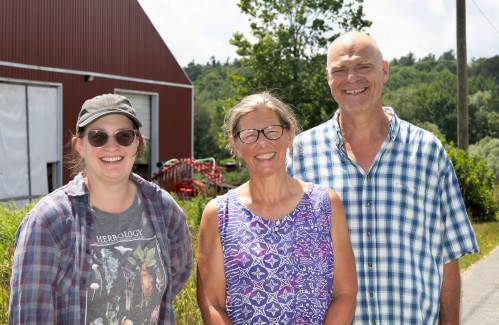
Firefighters partner with Jumptown to practice water rescues in Orange
ORANGE — Jumping out of a plane may sound terrifying to some, but for others it’s a thrill, especially when their landing makes a splash.

Several area departments put out Northfield house fire
NORTHFIELD — A stubborn house fire at 129 Warwick Road kept firefighters busy Saturday afternoon, but did not cause any injuries.
Most Read
 ‘A whole lot of fun’ on the water: Christmas in July boat parade returns Saturday
‘A whole lot of fun’ on the water: Christmas in July boat parade returns Saturday
 New role focused on downtown development in Northfield, Turners Falls and Shelburne Falls
New role focused on downtown development in Northfield, Turners Falls and Shelburne Falls
 Several area departments put out Northfield house fire
Several area departments put out Northfield house fire
 Erving man, 60, found dead in Montague Plains Wildlife Management Area identified
Erving man, 60, found dead in Montague Plains Wildlife Management Area identified
 Firefighters partner with Jumptown to practice water rescues in Orange
Firefighters partner with Jumptown to practice water rescues in Orange
 Trio unopposed for Greenfield City Council seats
Trio unopposed for Greenfield City Council seats
Editors Picks
 South County reporter bids adieu after four years
South County reporter bids adieu after four years
 ‘Like I'm standing in a room of giants’: Meet Elana Casey, new associate director of the Augusta Savage Gallery at UMass Amherst
‘Like I'm standing in a room of giants’: Meet Elana Casey, new associate director of the Augusta Savage Gallery at UMass Amherst
 PHOTO: Hay day
PHOTO: Hay day
 Greenfield Police Logs: June 9 to June 15, 2025
Greenfield Police Logs: June 9 to June 15, 2025
Sports

First Annual Pars for a Purpose at Thomas Memorial raises nearly $20,000 for Cancer Connection
The First Annual Pars for a Purpose at Thomas Memorial was a smashing success.
Opinion

Columnist Judy Wagner: The artist’s gift — Nancy Schön’s art speaks her truth
If you have ever strolled through the Boston Public Garden among its beautiful trees, flowers and iconic swan boats, you have likely come across the Make Way for Ducklings sculpture featuring Mrs. Mallard and her eight ducklings. If you were with children, no doubt they immediately ran over to touch or sit astride the ducks, smiling widely. This sculpture is the best known work of Newton artist Nancy Schön, a warm and vibrant person I first met long before she was famous, when I was just starting college and she generously invited me to visit her home anytime I need a break from the dorm. She and her husband Don, a noted professor at the MIT Department of Urban Studies and Planning, welcomed me many times. It was early in her artistic career and I often observed her hard at work in the drawing space set up in the upstairs hallway, painstakingly making drawings of famous paintings, following the advice of a mentor who said “copy the masters.”
 My Turn: Twelve Day Iran War — Why it happened and what’s next
My Turn: Twelve Day Iran War — Why it happened and what’s next
 Judy Franklin: Massachusetts Medicare For All bills must pass now
Judy Franklin: Massachusetts Medicare For All bills must pass now
 As I See It: Why there will be no more elections
As I See It: Why there will be no more elections
 My Turn: How did empathy become the enemy?
My Turn: How did empathy become the enemy?

Your Daily Puzzles

An approachable redesign to a classic. Explore our "hints."

A quick daily flip. Finally, someone cracked the code on digital jigsaw puzzles.

Chess but with chaos: Every day is a unique, wacky board.

Word search but as a strategy game. Clearing the board feels really good.

Align the letters in just the right way to spell a word. And then more words.
Business

Tri-State Precision in Northfield marks 60 years
NORTHFIELD — From infrastructure supporting the Northfield Mountain Pumped Storage Station to nuclear material filters and machinery pieces for a variety of high-tech industries, Tri-State Precision has done a little bit of everything as it marks its 60th anniversary.
 Greenfield’s Rite Aid closing
Greenfield’s Rite Aid closing
 New owner bringing ‘right energy’ to Main Street Bar & Grille in Greenfield
New owner bringing ‘right energy’ to Main Street Bar & Grille in Greenfield
 Sidehill Farm yogurt biz changes hands in Hawley
Sidehill Farm yogurt biz changes hands in Hawley
Arts & Life

‘Everybody wants to tell their story’: Ten historical societies participating in Hilltown History Trail, Aug. 2
History lovers take note: the fourth annual Hilltown History Trail will take place on Aug. 2.
Obituaries
 Bernard F. Murley
Bernard F. Murley
Turners Falls, MA - Bernard F. Murley, 91, of Montague St. passed away Friday July 11, 2025, at Charlene Manor Extended Care Facility. He was born in Montague August 11, 1933, the son of Obed and Abigail (Haigis) Murley. Bernie attended... remainder of obit for Bernard F. Murley
 Jane Louise LaValle
Jane Louise LaValle
Gill, MA - Jane Louise LaValle of Gill, MA passed away after a brief illness on July 14th, 2025 at Baystate Medical Center in Springfield, with family at her side. Jane was born in Norfolk, VA on March 12, 1961. Daughter of Mary and ... remainder of obit for Jane Louise LaValle
 Roland Scott Emery III
Roland Scott Emery III
Roland Scott Emery, III Parksville, British Columbia, Canada - May 6 , 1932 - July 9, 2025 It is with sadness that Roland's family announce his passing at Stanford Seniors Village on July 9th, at the great age of 93. Roland was predecea... remainder of obit for Roland Scott Emery III
 Joseph R. Canuel
Joseph R. Canuel
Greenfield, MA - Joseph R. Canuel, age 65, of 49 Maple Street, Greenfield MA. was unexpectedly "Called Home", on Sunday July 20, 2025, in the presence of his loving wife. He was born in Providence, RI on November 29, 1959, the son of th... remainder of obit for Joseph R. Canuel

 Hampshire County Group Insurance Trust considers further rate hikes
Hampshire County Group Insurance Trust considers further rate hikes
 Western Mass community colleges see continued enrollment growth under MassReconnect
Western Mass community colleges see continued enrollment growth under MassReconnect
 Gov. Healey forms Anti-Hunger Task Force in response to federal SNAP cuts
Gov. Healey forms Anti-Hunger Task Force in response to federal SNAP cuts
 BHN lands nearly $939K to expand child mental health support
BHN lands nearly $939K to expand child mental health support
 Nearly $334K heading to Franklin County farms
Nearly $334K heading to Franklin County farms
 Beacon Hill Roll Call: July 14 to July 18, 2025
Beacon Hill Roll Call: July 14 to July 18, 2025
 Blooming Backpacks drive ends Aug. 5
Blooming Backpacks drive ends Aug. 5
 80th Invitational Four Ball: Defending champs Wolanske and Donoghue seek third title
80th Invitational Four Ball: Defending champs Wolanske and Donoghue seek third title  Path of a champion: Leverett native Glenn Wong Jr. played key role in Oklahoma City Thunder’s NBA title run
Path of a champion: Leverett native Glenn Wong Jr. played key role in Oklahoma City Thunder’s NBA title run Bulletin Board: Frontier, Greenfield punch tickets to DRIVE League semifinals
Bulletin Board: Frontier, Greenfield punch tickets to DRIVE League semifinals Joe Harasymiak, Minutemen speak at MAC Football Media Day ahead of 2025 season
Joe Harasymiak, Minutemen speak at MAC Football Media Day ahead of 2025 season Breaking down barriers in trade work: Collective of LGBTQ handy service workers in high demand
Breaking down barriers in trade work: Collective of LGBTQ handy service workers in high demand Meet the Bluebird Lady of Birnam Road: Northfield resident shares avian hobby with neighbors
Meet the Bluebird Lady of Birnam Road: Northfield resident shares avian hobby with neighbors Valley Bounty: The joy of blueberry season: Sobieski’s River Valley Farm in Whately has been growing blueberries since 1977
Valley Bounty: The joy of blueberry season: Sobieski’s River Valley Farm in Whately has been growing blueberries since 1977 Celebrate Indigenous culture and history: 12th annual Pocumtuck Homelands Festival returns to Unity Park, Aug. 2
Celebrate Indigenous culture and history: 12th annual Pocumtuck Homelands Festival returns to Unity Park, Aug. 2 Sounds Local: There’s no place like home: Western Mass turned West Coast country singer Rosie Porter tours old stomping grounds
Sounds Local: There’s no place like home: Western Mass turned West Coast country singer Rosie Porter tours old stomping grounds 
